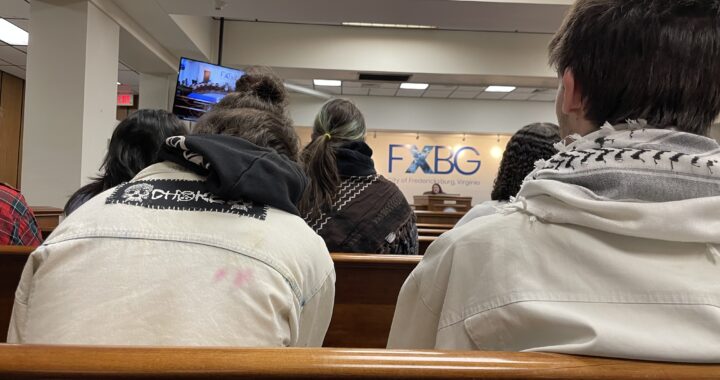UMW Student can Handle the Heat
2 min readBy JENNIFER DUDLEY
While most college students bummed around beaches this summer or tried to make some extra cash for the school year, UMW senior Peter Jump was in Utah working for the Forest Service and Bureau of Land Management.
Jump, a 22-year-old senior, spent his summer participating in an internship with the Student Conservation Association (SCA) in Cedar City and Duck Creek Village, Utah.
While in Utah, Jump worked with a four-person group known as a FUEL crew. They used Fire Effects Monitoring and Inventory System (FIREMON) protocols to measure fuel loads in the Dixie National Forest in Utah and on the Arizona Strip.
According to Jump, fuel loads are a “measure of tree types, sizes and density, the amount of debris on the ground and depth of leaf cover.” These factors had to be measured because fires burn faster uphill.
Jump, who received six credits for the internship, said the application process was easy, as it only required a few forms and three reference letters.
Jump says his previous work experience with the Student Conservation Association in California and Alaska helped to ensure his acceptance into the program.
With an SCA travel stipend worth up to $500, Jump chose to fly to Utah. A weekly stipend of $80 was given for food.
At the end of the summer, AmeriCorp presented an educational grant worth $1,300 to one of the program participants. Jump was the recipient of the grant. Housing was provided by the Forest Service, as well as all equipment, work vehicles, uniforms and training.
The Bureau of Land Management office is located in Cedar City, Utah, which is part of the Color Country response area. Utah is divided into distinct geographic parts: Southeastern Area, Northern Utah Area, Vernal Area, and Color Country Area are just a few. Color Country, the area Jump worked in, is found around the southern tip and borders the Arizona Strip.
Jump plans on returning to Utah after he graduates this spring. He hopes to work on an engine crew dedicated to fire prevention and suppression.
Jump says he wants to work in Utah until the end of fire season, which is typically in October. When the fire season ends, he will head to Salt Lake City to ski for the winter.
Jump is excited to reapply to the Forest Service or Bureau of Land Management for a hotshot, helitack or smokejumper crew.
“Those are the more elite units that spend much more time on fire in true wilderness areas,” Jump said. “I’m ready.”











